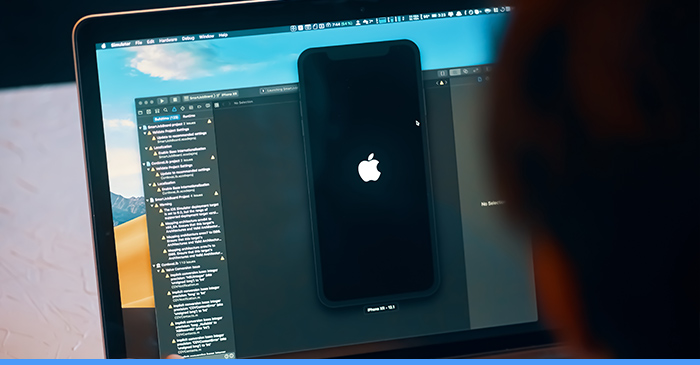
Java for iOS: An Overview
Welcome to the world of app development! If you’re an experienced Java developer looking to explore iOS app development, you might be wondering where to start. Look no further because this blog will dive into the fascinating world of building iOS apps with Java. While Objective-C and Swift are the primary programming languages for developing iOS apps, using Java is an option that can provide several benefits. We’ll discuss how you can leverage your existing Java skills to build iOS apps and create cross-platform apps that work on iOS and Android devices. So, let’s get started and explore the exciting possibilities of Java iOS app development!
First things first, it’s important to understand that Java cannot be used to write iOS apps natively. However, there are various ways to develop Java iOS apps, such as cross-platform app development tools and frameworks. These tools and frameworks provide a way to write once and deploy across different platforms. This saves time and effort and allows you to reach a wider audience with your app. One such framework is Codename One, which allows developers to write Java code and compile it into a native iOS app. With Codename One, you can create visually stunning and feature-rich apps that look and feel like native iOS apps. So, if you’re already familiar with Java, you can easily start building iOS apps without learning a new programming language.
Can You Use Java to Develop iOS Apps?

When developing iOS apps, Java is not a natively supported language. Apple’s iOS operating system uses two primary programming languages, Objective-C and Swift. These languages are optimized for iOS app development and provide the tools and frameworks to create native iOS apps with ease. So, to develop a pure native iOS app, you need to learn one of these languages.
However, there are ways to develop iOS apps using Java. Cross-platform app development tools and frameworks like Codename One and RoboVM allow developers to write Java code and compile it into a native iOS app. These frameworks provide a way to write once and deploy across different platforms, including iOS, Android, and the web. While using these frameworks, it’s essential to understand that the resulting app may not have the same performance and user experience as a native iOS app written in Objective-C or Swift. However, it allows developers to leverage their Java skills and build apps from Java for iOS without learning a new programming language.
See more: Mobile App Development for Small Businesses: Key Benefits
Why do Developers Use Java for iOS Apps?

You should use Java for iOS app development for several reasons. Firstly, if you are already familiar with Java, you can easily start building iOS apps without learning a new programming language. This can save time and effort and allow you to utilize your existing skills and knowledge. Additionally, Java is a highly versatile language, offering numerous libraries, tools, and frameworks that can make app development more efficient and effective.
Another reason you should use Java for iOS app development is the ability to create cross-platform apps that work on iOS and Android devices. Cross-platform app development frameworks like Codename One provide a way to write once and deploy across different platforms. This can save significant time and effort, as you do not need to create separate codebases for each platform. Additionally, it can provide a wider reach for your app, as users on both iOS and Android devices can access it. Using Java for iOS app development can be a powerful tool for developers looking to expand their skill set and create apps that work across multiple platforms.
Is Java Beneficial for iOS App Development?
Using Java for iOS app development can be beneficial in several ways. Firstly, it can save a lot of time and effort for developers, as they can leverage their existing Java skills and knowledge to create iOS apps without having to learn a new programming language. Additionally, it can provide a way to create cross-platform apps that work on both iOS and Android devices, saving significant time and effort, as developers do not need to create separate codebases for each platform. This can also provide a wider reach for the app, as users on both iOS and Android devices can access it. Overall, developing iOS apps with Java can be a powerful tool for developers looking to create efficient, effective, and visually stunning apps that work across multiple platforms.
Conclusion
In conclusion, Java may not be a natively supported language for iOS app development. Still, cross-platform app development tools and frameworks provide a way to develop iOS apps using Java. These frameworks allow developers to write Java code and compile it into a native iOS app, leveraging their Java skills and creating cross-platform apps that work on both iOS and Android devices. Additionally, it offers several benefits, including time and effort savings, wider reach, and the ability to create visually stunning and feature-rich apps.
If you’re looking to develop an iOS app with Java, consider exploring the possibilities of developing with Java and cross-platform app development frameworks like Codename One and RoboVM. At Arturo Digital, we offer website and app development services for iOS, Android, and all platforms. Our team of experienced developers can help you create efficient, effective, and visually stunning apps that work across multiple platforms. Contact us today to learn more about our services and how we can help you achieve your app development goals.
Read more: A Comprehensive Guide to Java Mobile App Development